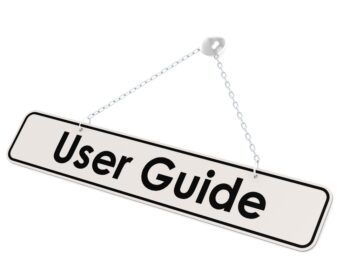
WCMSA Submission Process
It is important to remember that the Workers’ Compensation Medicare Set-aside (WCMSA) review and approval process continues to be voluntary. This is an important concept to remember when addressing troublesome issues:
- Below Review Threshold Cases: CMS cautions all stakeholders not to settle cases with impunity. This means that parties should always consider Medicare’s interest in cases that do not meet their review thresholds. When in doubt, consult with an attorney who specializes in Medicare Secondary Payer compliance issues.
- Common Set-aside Submission Errors: Parties who submit cases to CMS for review and approval need to remember that you are playing in the CMS sandbox – they need to follow CMS’ rules as outlined in the Workers’ Compensation Medicare Set-aside Reference Guide. Typical problems that arise include submitting IME reports, not submitting claim payment histories, and not providing settlement documents and required pleadings.
- Understanding the Re-Review and Amended Review Process: Never forget that CMS does not provide a formal appeal process when it comes to Set-asides and “counter-highers.” The re-review and amended review processes have strict guidelines, and parties seeking a review should understand Section 16 of the WCMSA Reference Guide.
It is unclear if there will be any significant changes in the WCMSA review process in the coming year. Stakeholders should continue to keep themselves updated on changes and implement change as necessary.
Possible WCMSA Legislation
Over the past decade, several bills have been introduced in Congress without success to streamline the WCMSA process. One bill currently pending at the federal level is the Coordination of Medicare Payments and Workers’ Compensation Act – COMP Act (S. 653). If passed into law, the bill would compel the following changes:
- Codify the term “Medicare Set-aside” and other frequently used terminology;
- Create a “Qualified Medicare Set-aside,” which would recognize optional proportional adjustment of the set-aside amount;
- Establish legal, safe harbors a party could rely on into perpetuity;
- Require the recognition of state law and rules related to workers’ compensation settlements; and
- Codify a formal appeal process and mandate judicial review for disputed counter-higher approvals by CMS.
The chance of this bill becoming law is guarded.
SMART Act Recovery of Conditional Payments
Section 202 of the SMART Act requires CMS report publish its recovery threshold for conditional payments on an annual basis. This report is generally issued during the second week of November. Over the past several years, this amount has remained at $750 for all Non-Group Health Plan (NGHP) lines of business – workers’ compensation, general liability, and no-fault insurance. It is expected that this amount will remain unchanged for the coming year.
Implementation of the PAID Act in December 2021
In December 2021, President Trump signed the “Provide Accurate Information Directly Act” or “PAID Act” into law. This law was designed to address problems attorneys, service providers, and other interested stakeholders face when resulting conditional payments made by Medicare Advantage Plans (Part C) and prescription drug (Part D) plans.
In the summer of 2021, CMS started hosting a series of webinars regarding changes in effect on December 11, 2021. These webinars have mainly focused on the Workers’ Compensation Medicare Set-aside Portal (WCMSP) and how users will access information. Expected changes should include:
- Whether a claimant subject to the query is, or during the preceding 3-year period has been, entitled to benefits under the program under this title on any basis; and
- The plan name and address of any Medicare Advantage plan under part C and any prescription drug plan under part D the claimant is enrolled or has been enrolled during such period.
The PAID Act relates to Section 1862(b)(8)(G) of the Social Security Act – amending 42 U.S.C. §395y(b)(8)(G).
Conclusions
Successful Medicare Secondary Payer recovery requires all interested stakeholders to monitor change and implement them in their daily practice. The coming months and year could offer some changes to how Medicare-related issues impact workers’ compensation claims and settlements. Now is the time to stay tuned for additional information and possible change.
 Author Michael Stack, CEO Amaxx LLC. He is an expert in workers’ compensation cost containment systems and helps employers reduce their workers’ comp costs by 20% to 50%. He works as a consultant to large and mid-market clients, is a co-author of Your Ultimate Guide To Mastering Workers Comp Costs, a comprehensive step-by-step manual of cost containment strategies based on hands-on field experience, and is the founder & lead trainer of Amaxx Workers’ Comp Training Center, which offers the Certified Master of Workers’ Compensation national designation.
Author Michael Stack, CEO Amaxx LLC. He is an expert in workers’ compensation cost containment systems and helps employers reduce their workers’ comp costs by 20% to 50%. He works as a consultant to large and mid-market clients, is a co-author of Your Ultimate Guide To Mastering Workers Comp Costs, a comprehensive step-by-step manual of cost containment strategies based on hands-on field experience, and is the founder & lead trainer of Amaxx Workers’ Comp Training Center, which offers the Certified Master of Workers’ Compensation national designation.
Contact: mstack@reduceyourworkerscomp.com.
Workers’ Comp Roundup Blog: https://blog.reduceyourworkerscomp.com/
©2021 Amaxx LLC. All rights reserved under International Copyright Law.
Do not use this information without independent verification. All state laws vary. You should consult with your insurance broker, attorney, or qualified professional.



























